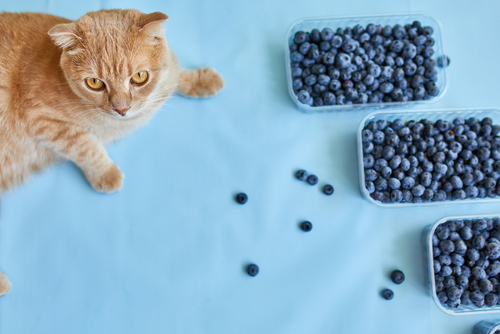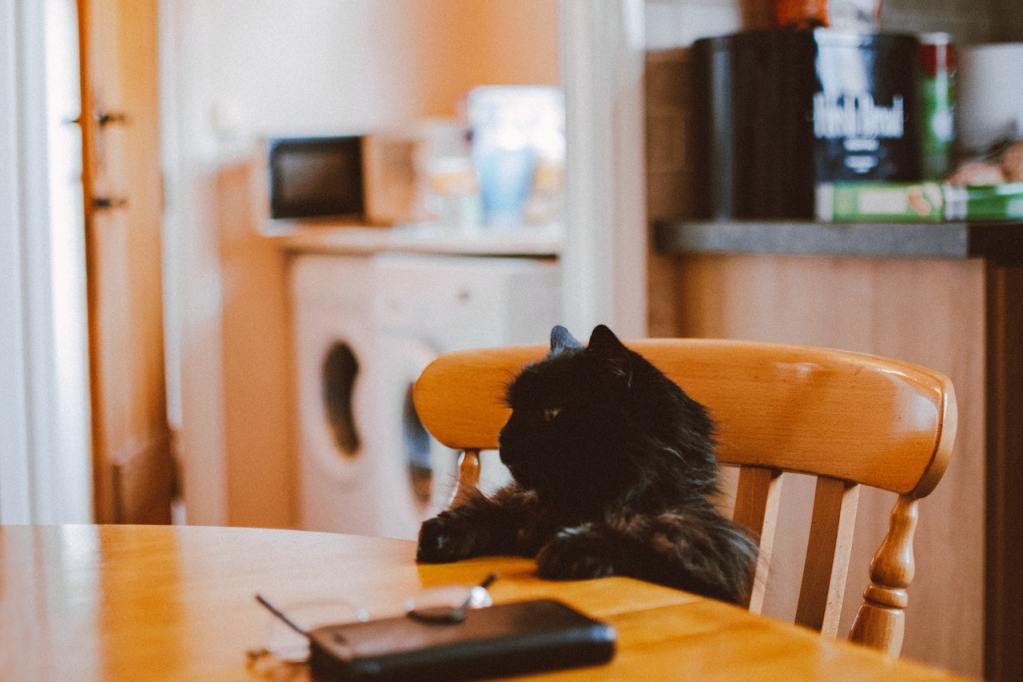
As a cat parent, you may be interested in incorporating fruit into your fur baby’s diet. Many fruits can provide nutritional benefits for your feline companion, but can cats eat blueberries? We have some good news. One of your favorite superfoods is perfectly safe for your cat to eat in moderation, but before you share blueberries with your kitty, you should be aware of the potential side effects. We’ll walk you through everything you need to know about giving your cat blueberries.
Benefits of giving blueberries to cats
Blueberries are a low-calorie fruit packed with vitamins and minerals, making them a healthy treat for your kitty. An excellent source of vitamin C and antioxidants, blueberries can help boost your cat’s immune system and prevent infections. Additionally, blueberries are high in fiber, which can aid in digestion and help even regulate your kitty’s bowel movements.
In terms of minerals, blueberries contain essential nutrients like potassium, magnesium, and manganese. Potassium is essential for healthy muscle function, as it can help regulate blood pressure, while magnesium is necessary for bone and muscle health. Lastly, manganese helps support your cat’s metabolism.
Potential risks
While blueberries can provide some nutritional benefits for cats, it’s also important to keep in mind that they should only be given in moderation. Too many blueberries can cause an upset stomach, diarrhea, or vomiting in some cats. Also, the seeds and skin of blueberries can be potentially harmful to cats if ingested in large quantities. The seeds can cause digestive problems, and the skin can be difficult to digest for some cats, leading to digestive discomfort.
When feeding your cat blueberries, it’s essential to consider their individual dietary needs and any existing health conditions. If your cat has a history of digestive issues or is prone to urinary tract infections, it’s best to avoid feeding them blueberries altogether.

Safety tips for feeding blueberries to cats
To properly incorporate blueberries into your cat’s diet, start by giving them a small piece or two and watch for any adverse reactions. If all goes well, you can gradually increase the amount you give your kitty. However, it’s always best to err on the side of caution and not overdo it with any treat. Too many treats can lead to weight gain, causing a whole host of problems.
It’s also important to prepare blueberries before feeding them to your feline friend. Wash the berries thoroughly to remove any potential pesticides or harmful bacteria, and remove the stem and leaves. You can also mash or puree the blueberries for easier digestion and to eliminate potential choking hazards.
Blueberries can be a safe and healthy addition to your cat’s diet in moderation, and they may provide some health benefits. As with any new treat, it’s best to start off with small amounts and monitor your cat’s reaction before increasing the serving size, which helps reduce the risk of gastrointestinal issues. With proper preparation and moderation, blueberries can be a tasty and nutritious treat for your feline friend.



